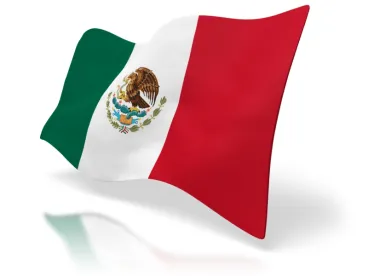There is a new labor ball game in Mexico, as the country has amended its relevant laws to be in compliance with the incoming USMCA (U.S.-Mexico-Canada Agreement, soon to be NAFTA´s successor). Most importantly, (i) there will be real, working unions, meaning that collective contracts signed with employer-friendly unions (commonly known as “protection” contracts) will soon be out the door, which then (ii) will likely bring new leadership and more than one union to a company.
Therefore, it is certainly timely to take preventive action to be in compliance with the new labor laws, to strengthen Mexican human resources departments, to identify incoming new leadership, and to know what is or may be bringing restlessness to the work force.
The enclosed summary of recent Mexican labor law changes may help your company have a clearer picture of what has been approved.
Preamble
The USMCA, signed in November 2018, has already been approved by the Mexican Senate and is making its way through the legislative process in the U.S. and Canada. Though subject to political calendars, it is expected to be ratified by the three countries this year.
As part of its commitments under the USMCA (see Chapter 23 and Annex 23-A), Mexico obliged itself to reform its labor laws and has done so as described in this document. Notwithstanding that, the leadership of the Democrat-controlled U.S. House of Representatives has shared that enforcement of the labor reform is a concern before the agreement can be put to a vote; environmental concerns and prescription drugs have also been raised as issues requiring attention.
Labor Reform in Mexico
On February 24, 2017, Mexico amended its constitution to give the highest legal support to the then incoming labor provisions:
-
International Labor Organization´s (ILO) Agreement #98.
-
Changes to the Mexican Federal Labor Law.
ILO´s Agreement #98
ILO´s Agreement #98 deals exclusively with the right to form unions and collective bargaining. Like any other international agreement adopted by the country, its provisions rank second only to the Mexican Constitution. (We should note that there is no implementing legislation of international agreements in Mexico thus their provisions are applied as written.)
The relevant agreement, created in Geneva in 1949, was not adopted by Mexico until October 30, 2018 to lay the groundwork of the then soon-to-be signed USMCA; its entry into force will occur one year later, October 30, 2019.
The following is a summary of ILO´s Agreement #98:
-
Workers are protected against any type of discrimination aimed at impairing freedom of association to a union related to their employment.
-
This protection shall be exercised particularly in relation to:
-
Avoid conditioning employment of a person in order for him or her to belong to, or refrain from, belonging to a union.
-
Avoid dismissing a worker based on union membership, or for partaking in union activities outside working hours.
-
-
Regardless of whether a union is formed by workers or employers, they must be protected from interference with each other.
-
The following is considered interference:
-
Measures aimed at promoting the establishment of workers’ unions dominated by an employer or an employers’ organization.
-
To support, economically or otherwise, workers’ unions in order to place them under the control of an employer or an employers’ organization.
-
Changes to the Mexican Federal Labor Law
Changes to the Mexican Federal Labor Law took effect the day after their publication, on May 1, 2019. The Mexican government passed these changes in response to its obligations as per the terms of USMCA´s Chapter 23 and Annex 23-A.
The following is a summary of the changes to the Mexican Federal Labor Law:
-
Employers are prohibited from forcing workers to join or withdraw from a union to which they belong, or to vote for a particular candidate.
-
Organizations formed by workers or employers must be protected from mutual interference. It is considered an act of interference to promote an organization dominated by an employer or an employers' organization. In contrast, benefits specified in a collective bargaining agreement cannot be considered as acts of interference.
-
No person may be compelled to join, or refrain from joining, a union.
-
Votes regarding a union should always be personal, free of pressure and cast in privacy.
-
Articles of incorporation of unions must contain the procedure so that its members can vote in a personal, pressure-free, and private manner regarding their initial collective labor agreements and their revisions.
-
In order for a union to sign a collective labor agreement or to summon for a strike, it must have the appropriate Proof of Representativeness issued by relevant authority.
-
A Proof of Representativeness can be issued exclusively to a union that has at least 30% of the workers’ representation and, when there are two or more with that percentage, to the union that obtains the largest number of votes among them.
-
Current administrative labor authorities will gradually be replaced by specialized labor judges.
-
Both existing and future labor contracts shall be revised at least every four years.
Possible Impacts to Employers Derived from Previous Provisions
-
1As workers become aware of recent legal changes, they will likely question the status quo of their unions.
-
“Protection” labor contracts (i.e., those signed with unions friendly to employers) will likely be challenged and, depending on company by company negotiations, replaced by other contracts or ratified.
-
Depending on the specific offers put forward by unions, workers would decide to stay in them, leave or form/join a new union.
-
A number of older union leaders will likely be replaced by younger leaders under a perceived more-progressive platform.
-
Unions may increase demands for economic support due to the expansion of their workloads.
-
Human capital areas of companies, as well as outside counseling, will need to be strengthened.




 />i
/>i
